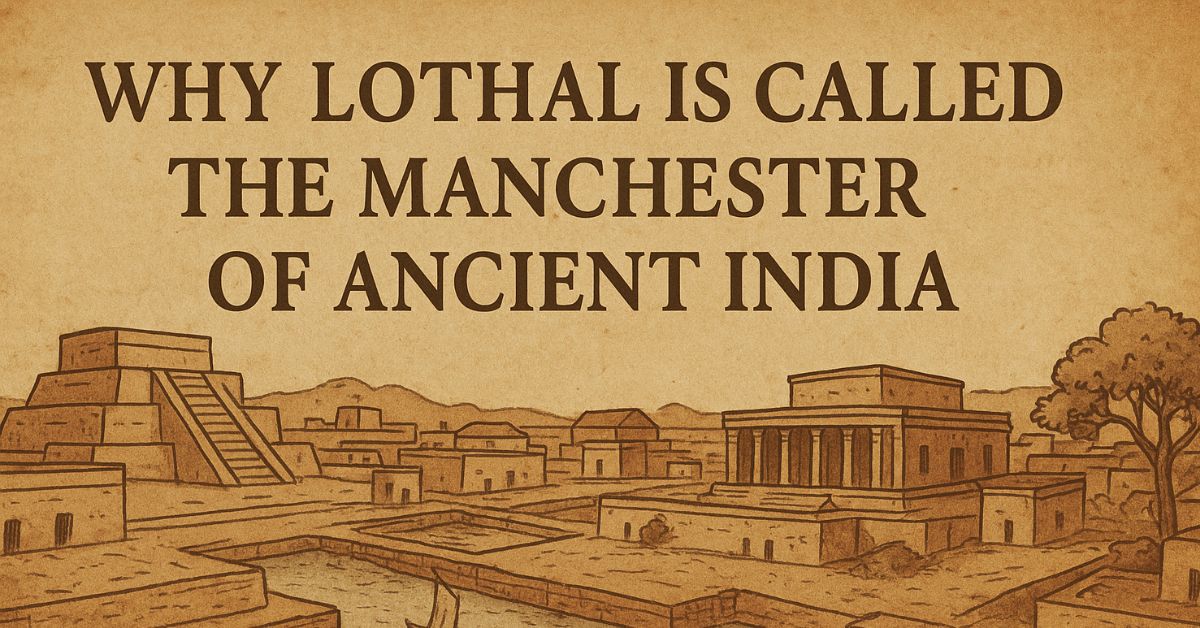Lothal, one of the most important cities of the Indus Valley Civilization, is often called the Manchester of Ancient India. Located in present-day Gujarat, Lothal was a major hub of trade, industry, and maritime activities around 2400 BCE. Known for its advanced bead-making, textile-like crafts, and one of the world’s earliest dockyards, Lothal played a key role in international trade. Just as Manchester in England became famous during the Industrial Revolution for textiles, Lothal was the center of industrial and commercial activities in ancient India.
Manchester of Ancient India: Why Lothal Earned This Title
Lothal is called the Manchester of Ancient India because it was a thriving industrial town during the Indus Valley Civilization. The city was a well-planned settlement with streets, drainage systems, and advanced urban design. But what made it truly special was its role as a center of craft production and trade.
1.Center of Bead-Making and Crafts
Lothal became famous for its bead-making industry. Archaeologists have found thousands of semi-precious stone beads, shells, ivory objects, and gems that were crafted with great skill. The beads were exported to distant lands like Mesopotamia (modern Iraq), Egypt, and Persia. This made Lothal a leading hub for ancient Indian trade and industry.
Similar to how Manchester’s textile industry supplied fabrics across the world, Lothal’s bead industry supplied ornaments across continents.
2. The World’s Oldest Dockyard
One of the biggest discoveries in Lothal is its dockyard, which is considered the world’s oldest known dock. Built on the banks of a river, it allowed ships to enter and trade goods. This shows that Lothal was a major port city of the Indus Valley Civilization.
Just like Manchester’s location helped it grow as an industrial city in England, Lothal’s dockyard made it an important maritime hub in ancient India.
3. Hub of International Trade
Lothal was not just a local trade center but also an international trading hub. Goods like beads, gems, cotton, and ornaments from Lothal were exported overseas. In return, items like copper, tin, and other raw materials were imported. This two-way trade boosted the economy and gave Lothal global recognition even 5,000 years ago.
Importance of Lothal in Indian History
Lothal’s contribution to ancient Indian civilization is remarkable. It shows that India had:
- A thriving industrial economy much before modern times.
- A strong maritime trade network with foreign countries.
- Skilled artisans who made beads, gems, and ornaments still admired today.
- Advanced urban planning similar to modern smart cities.
Conclusion
Lothal is rightly called the Manchester of Ancient India because it was the heart of industry, trade, and maritime activities during the Indus Valley Civilization. With its bead-making industry, the world’s first dockyard, and international trade links, Lothal stood as a symbol of India’s rich industrial past. Today, it reminds us that India’s global trade and industrial expertise began thousands of years ago in this ancient port city.

